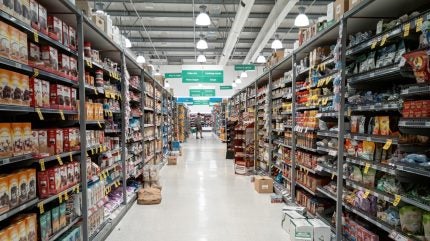
New Zealand’s competition regulator is proposing measures to create a fairer playing field between emerging grocery producers and the major supermarkets.
In a two-pronged initiative, the Commerce Commission is also concerned that smaller grocery retailers face a disadvantage over their more dominant counterparts when it comes to securing competitive prices from large suppliers.

Discover B2B Marketing That Performs
Combine business intelligence and editorial excellence to reach engaged professionals across 36 leading media platforms.
The Commission presented its findings today (5 June) following a review of the Grocery Supply Code and is reaching out for feedback before it publishes its final report in September.
“If the Commission doesn’t see meaningful progress in 12 months, it will decide if regulations should be changed,” the regulator said in a statement.
Grocery Commissioner Pierre van Heerden explained: “We know the current grocery market is not serving Kiwi consumers well. The status quo lets a few major players set the rules for the rest of the industry which is negatively impacting consumers, new and expanding competitors, and small suppliers.”
He added: “These major players are the three main supermarkets and large national and multi-national suppliers. Their significant market share allows them to influence the settings of the market. This limits the ability for competing retailers to enter and grow in the market and often results in smaller suppliers getting an unfair deal.”

US Tariffs are shifting - will you react or anticipate?
Don’t let policy changes catch you off guard. Stay proactive with real-time data and expert analysis.
By GlobalDataThe draft recommendations to the Supply Code include curbing the circumstances in which supermarkets can bill suppliers for routine retail tasks, such as shelf stocking and display arrangement.
Van Heerden highlighted the issue of a power disparity, saying that a “power imbalance between the major supermarkets and small suppliers creates a reluctance among suppliers to push back on supermarket demands or behaviour for fear of damaging relationships or losing access to supermarket shelves”.
New Zealand’s grocery market is dominated by Foodstuffs and Woolworths. “The major supermarkets are the largest customers for most grocery suppliers,” van Heerden said, controlling 82% of the market.
The proposed modifications by the Commission would mandate supermarkets to keep records on how they are complying with the Code when undertaking “certain activities”, including “negotiating promotions with suppliers and making deductions to payments without written consent”.
Looking into the wholesale supply of groceries, the Commission pointed out that promotional payments and rebates are generally inaccessible to newer or smaller retailers.
“A significant issue new and expanding supermarket competitors face is securing access to cost-effective groceries from large suppliers,” Van Heerden said. “Competing retailers can’t negotiate similar levels of support due to their weaker buying power.”
He also noted that the prevalent high-low pricing strategy used by New Zealand’s major supermarkets is more extreme than in other countries, and a reduction in promotional dependence would result in more consistent and lower prices for consumers.
“The best option is for large suppliers and the major supermarkets to voluntarily change their behaviour. If they don’t, we’ll have to consider our other alternatives,” van Heerden said.



